Lausanne, Switzerland
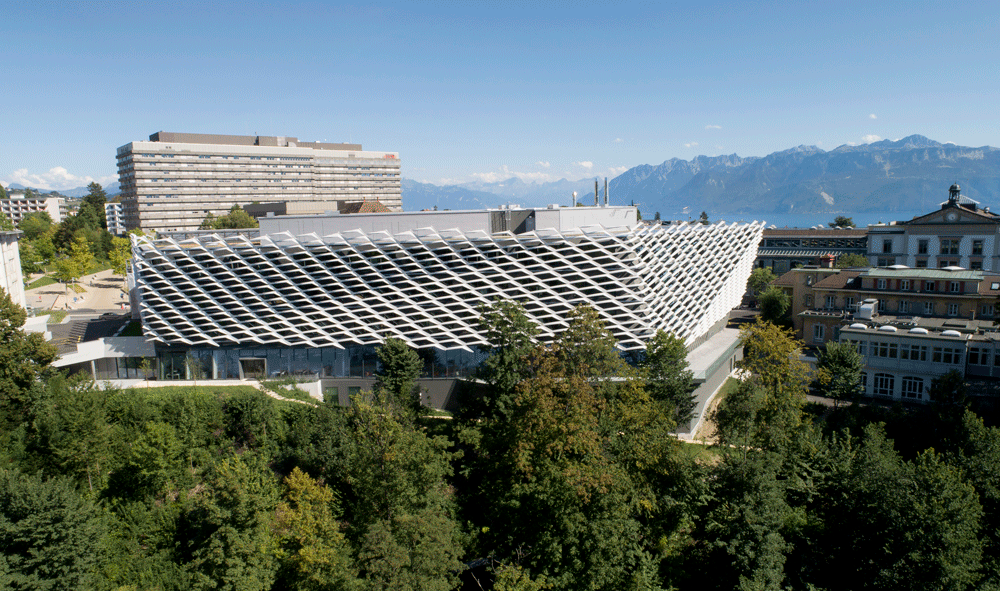
The following description and photos are courtesy of Behnisch Architekten
The AGORA Pôle de recherche sur le cancer, located in Lausanne within sight of Lake Geneva, specifically provides working and research space for 400 scientists and practitioners under one roof. The major focus was on a comprehensive, holistic concept to design communication and working spaces for the cancer research center. Existing visual connections on the site and to the landscape beyond were crucial for a cautious formulation and adaption of the building mass. Thus, the building’s sculptural character makes it easily recognizable within its surroundings and contributes to its autonomous presence.
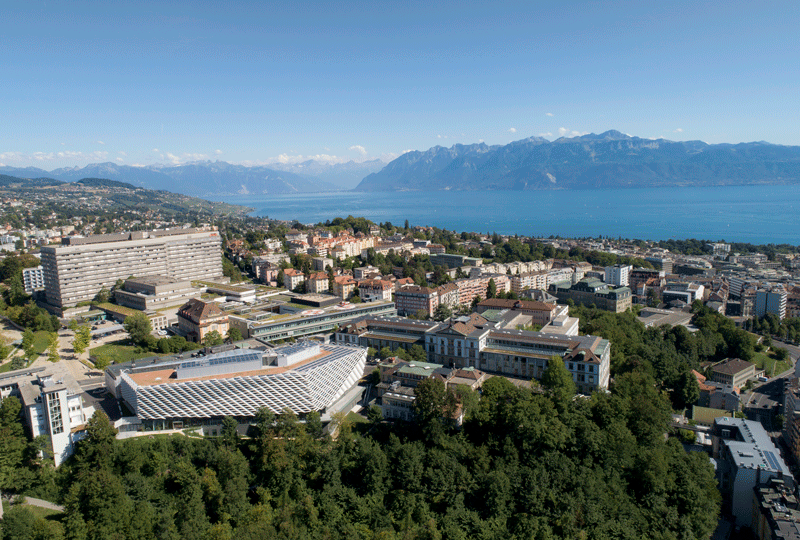
Connecting the most diverse requirements into an extremely heterogeneous and tight urban fabric places great demands on the architectural and programmatic concept. The decision to link to an existing building on the one side while creating a harmonious transition to nature on the other, informs the building’s structure without adversely affecting the site’s existing programmatic functions.
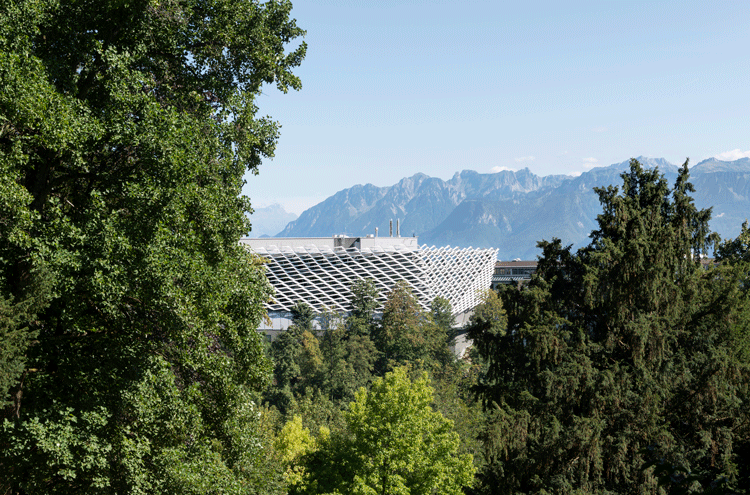
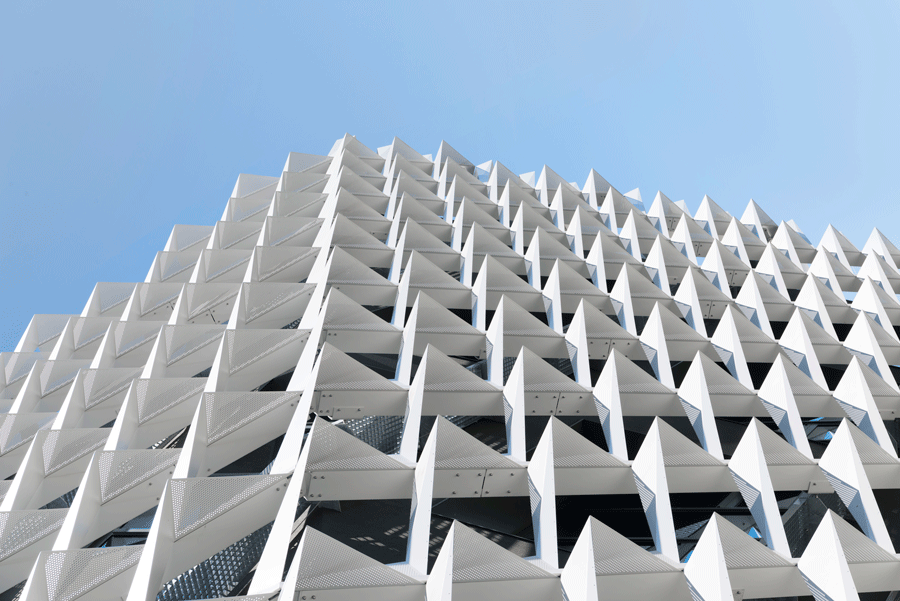
Spatial qualities, directly perceived through daylight, proportion
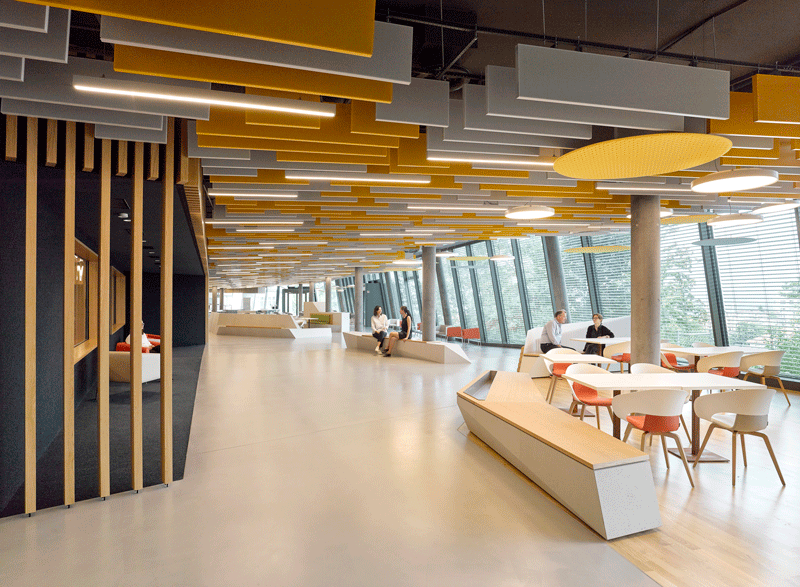
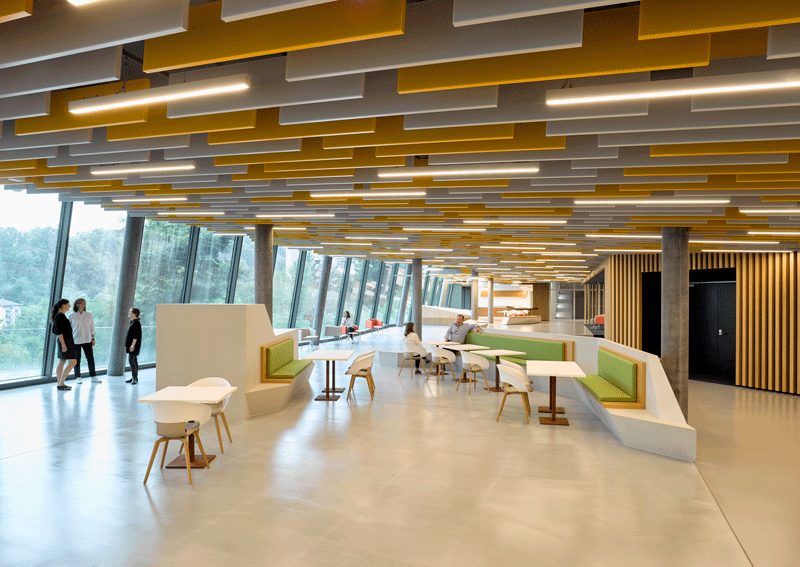
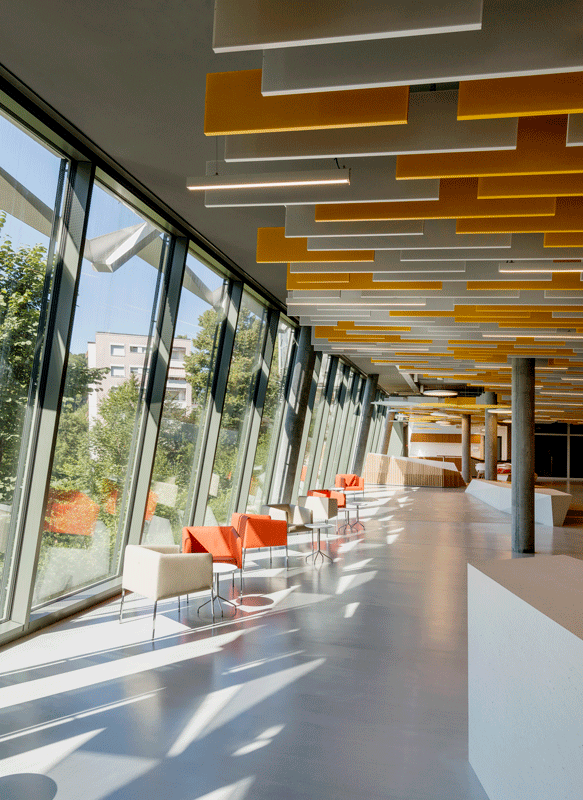
In addition to the high quality of residence in the professional environment, communication plays a central role, both inside and outside. The Agora area, the public level of the cancer research center, connects the campus’s existing pathways to the laboratory and office levels via interconnected communication areas and informal workplaces.
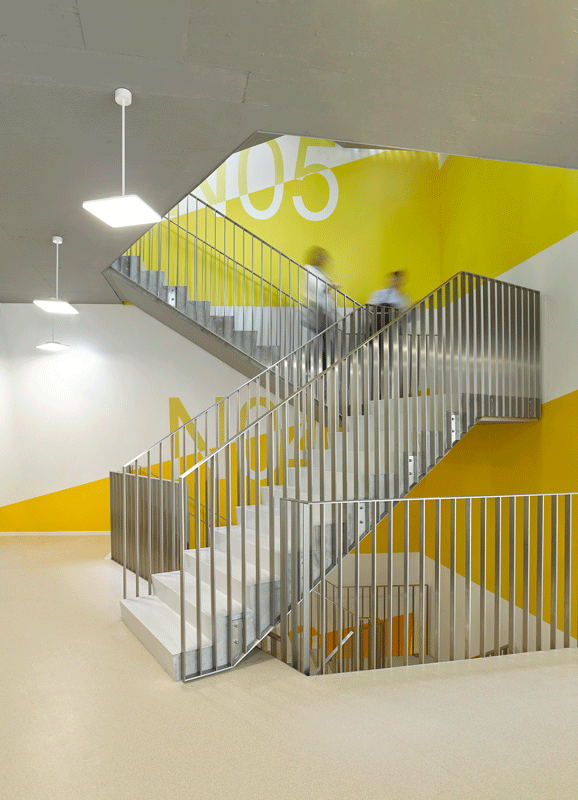
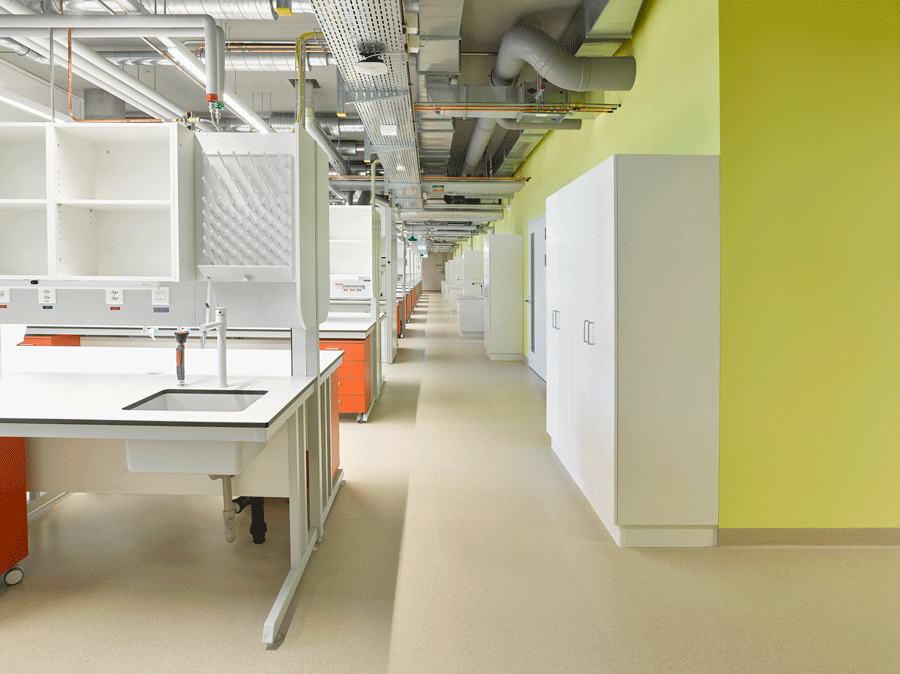
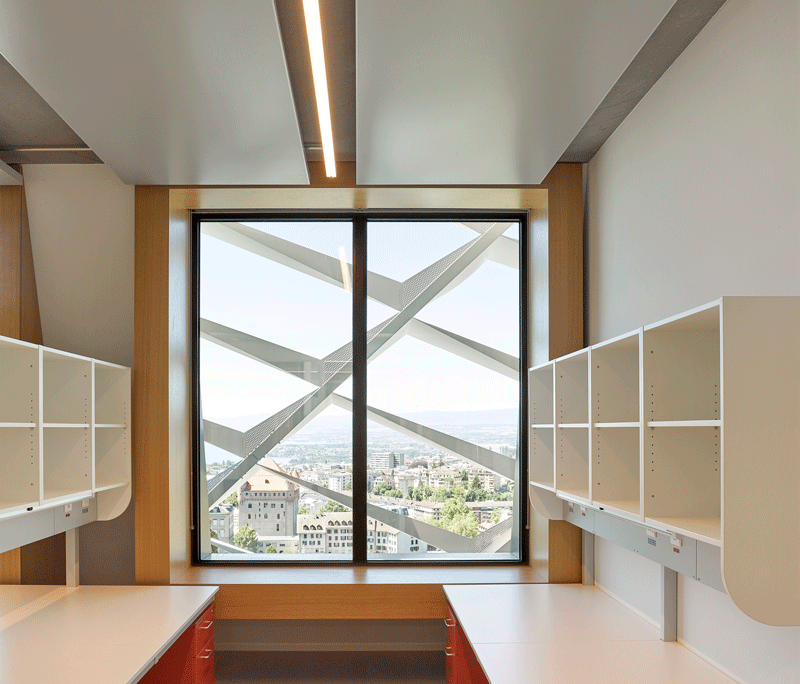
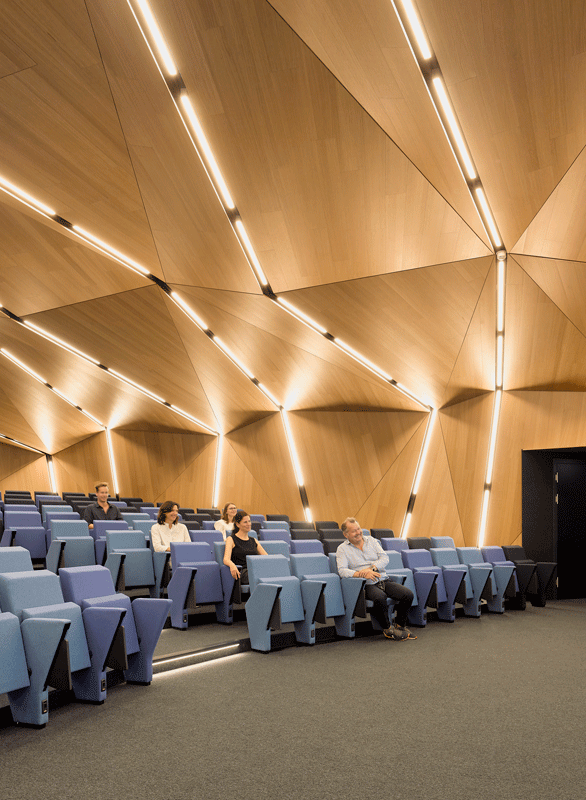
The internal organization of the programmatic areas offers the users a high level of flexibility to provide the necessary freedom for future changes. The Atrium, main entrance of the building, connects AGORA to the neighbor building Bu25 on the east side. This tempered volume offers public meeting points and enables exceptional events to take up.
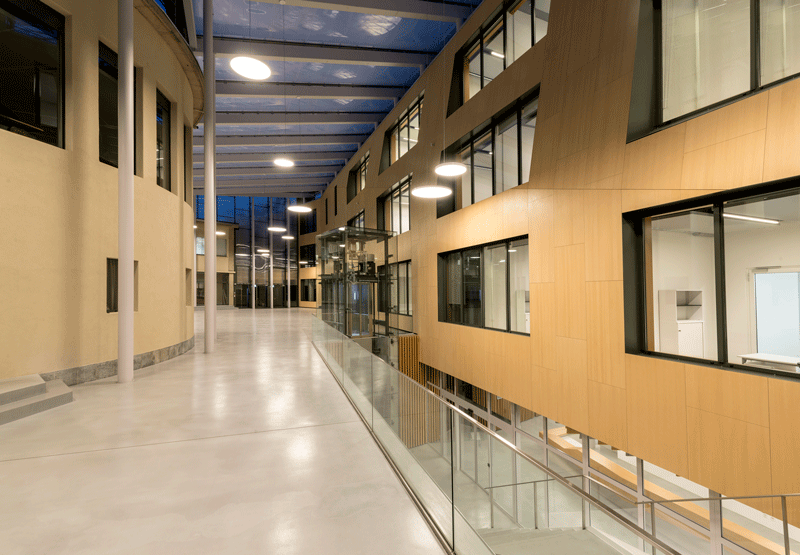
The building skin is designed to enhance daylight use in the depth of the building. In specific areas, operable windows allow for natural ventilation. This provides for better individual climate control. Daylight enhancement systems, optimized sunlight protection, the responsible management of natural resources in the construction and maintenance of the building, as well as the use of both renewable and existing energy systems on site are preconditions for a successful and sustainable working environment. They, together with ISREC’s own research goals, establish a future-oriented image for the new facility.
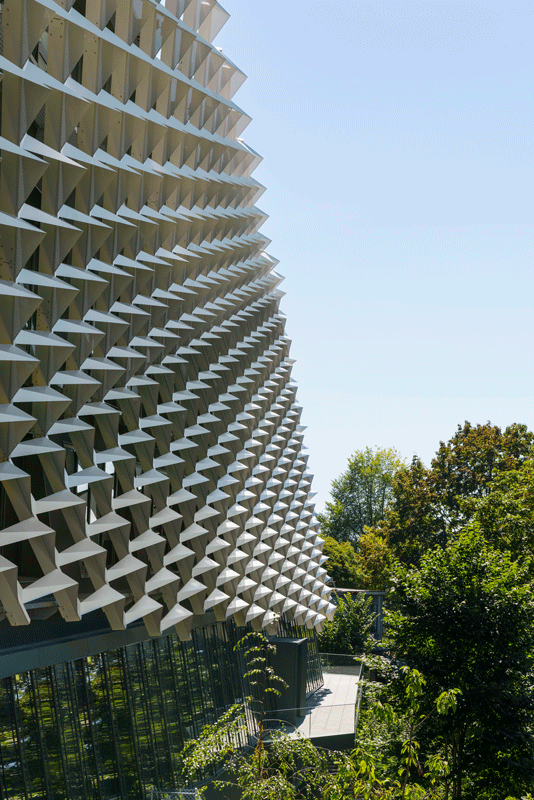
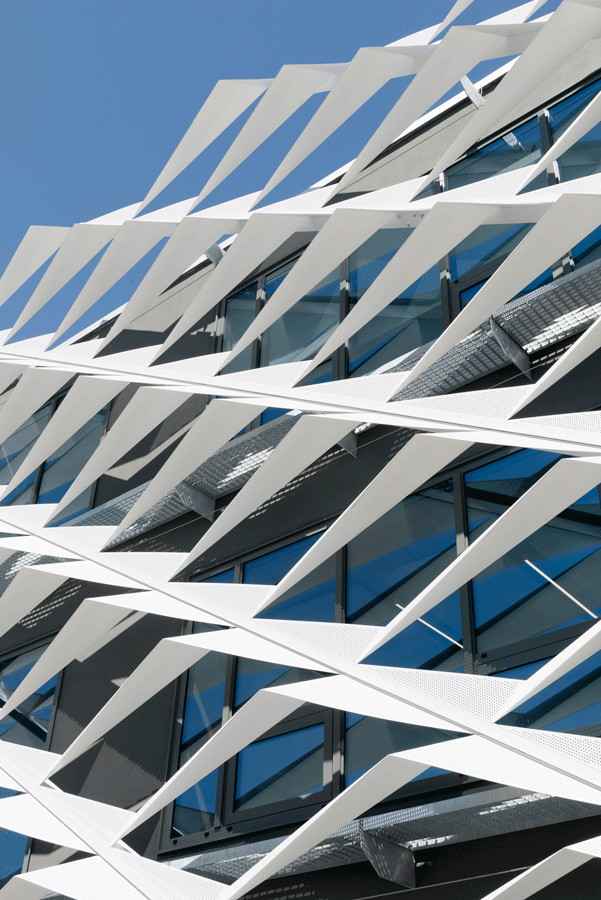
Details
Client:Fondation ISREC
Architect:Behnisch Architekten, Stuttgart
Tender/Construction Management:Fehlmann Architectes SA, Morges
General Contractor:Steiner SA, Tolochenaz
Planning and construction:2013-2018
Gross:22.500 m² / 241,700 sq.ft.
Volume:93.000 m³ / 3,300,000 cu.ft.
Address: Rue de Bugnon 25ACH-1010, Lausanne, Switzerland




